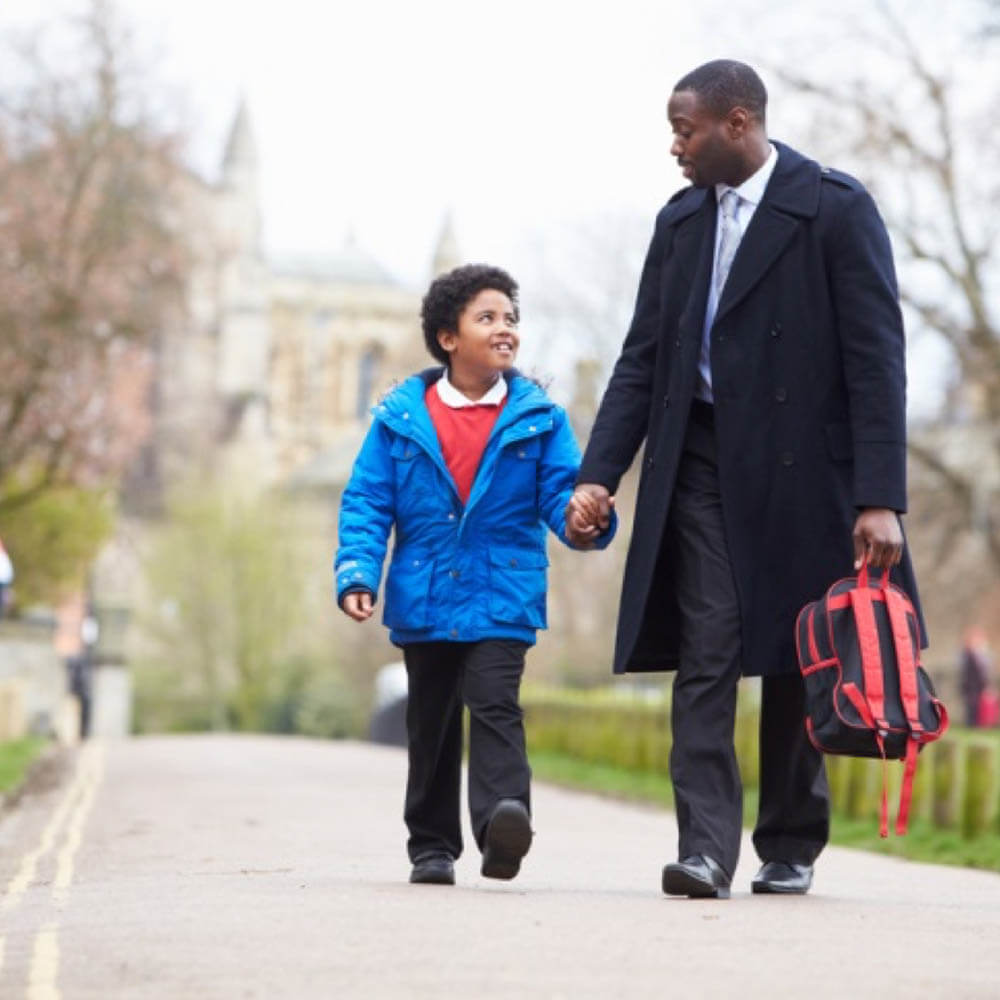Getting dressed
Putting on clothes is a tricky skill. It requires both big and small movements. Buttons and zips can be fiddly for small fingers. Velcro or buckles are much easier to fasten shoes. For PE get children trainers rather than plimsoles as they better support little feet – if shoes are comfy children will enjoy physical activity much more! Practice putting shoes on the correct feet. Draw half a smiley face inside each shoe – this can help children with their left and right!
Help your child to get dressed by choosing school uniform that is easier to get on and off such as elasticated waists. Practice putting it on (the right way round!) and taking it off before their first day – lots of encouragement and making it fun will help them to be excited and want to keep trying. Be sure to plan extra time in the morning so that it is not a stressful rush.
Try this Ready, Steady, Dress activity from PACEY to build the excitement together at home.
Ready for lunch!
All children are entitled to a nutritionally balanced school meal in Reception, Year 1 and Year 2 free of charge. Children will need to feel confident eating independently, using a knife and fork and sat at a table. Get your child used to this by eating as a family at the table at home – practicing cutting up food and even get them to carry their own plate and clear it away, they may be expected to do this at school.
To support your child to eat well, including a variety of fruits and vegetables – at least 5-a-day - make sure you often expose your little one to new foods, and in different forms – raw or cooked, in sticks or in slices, on their own or as part of a meal. Try to incorporate a variety of textures too – smooth, lumpy and crunchy foods, as this will help your child to learn to like a range of different food.
It is perfectly normal for toddlers to refuse to eat or be a fussy eater. Make sure you give them the right portion – children have tiny tummies so will eat little and often rather than a big meal. To help keep bodies and teeth healthy, children should only drink plain water or unflavoured milk. Children over one year should drink from a cup or free-flowing beaker with a hard spout.
Child Feeding Guide Tips and Tricks
Be Sugar Smart! Check out these tips for Healthier Snacks for Kids
HomeStart Mealtime Routine sheets One and Two
Going to the toilet
Toilet training requires time and patience. Give your child plenty of encouragement and praise when they are dry; don’t get cross or let your child see your frustration when they have an accident. If they have an accident change them in the bathroom. This helps them learn where they should be going. Encourage them to clean themselves by wiping properly using toilet paper and wash their hands if they are able to. Using (non-food) rewards can be helpful when toilet training – stickers work well.
Concerned your child is constipated?





